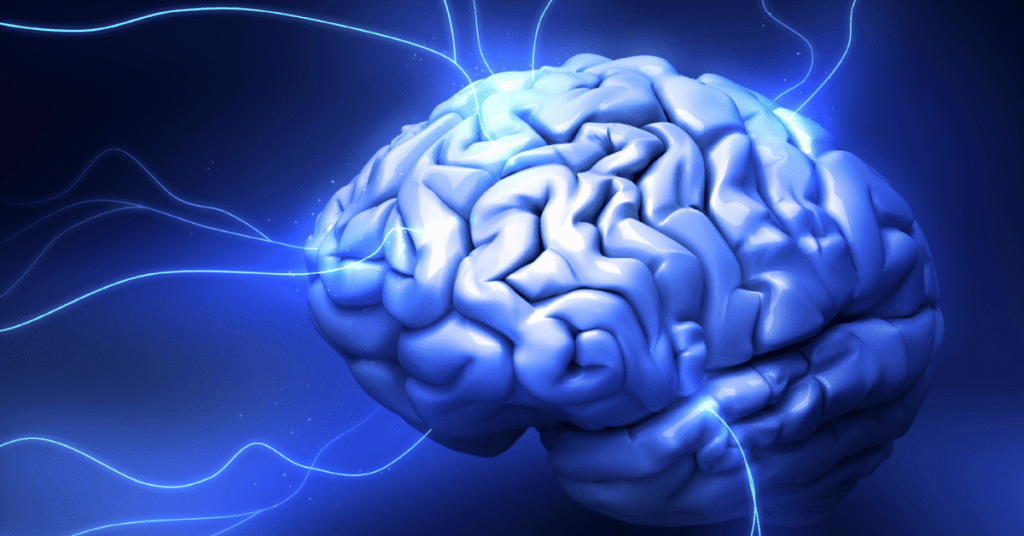Imagine your brain as a high-performance computer. Just like any machine needs downtime to recharge, repair, and optimize itself. That’s exactly what sleep does for your brain.
In today’s fast-paced world, sleep is often sacrificed for productivity, entertainment, or stress. This chronic sleep deprivation can lead to memory loss, poor focus, mood swings, and even long-term cognitive decline.
By understanding how sleep affects your brain, you can prioritize rest and unlock better mental clarity, emotional stability, and overall brain health. Let’s explore the science behind sleep and its profound impact on your cognitive function.
The Connection Between Sleep and Brain Function

Sleep is not just a passive state; it’s an active process where your brain performs essential functions. During sleep, your brain consolidates memories, processes emotions, and clears out toxins that accumulate during the day. Modern research shows that sleep and brain function are deeply interconnected.
For example, REM sleep benefits include enhancing creativity and problem-solving skills, while deep sleep is crucial for brain repair during sleep.
Without adequate rest, your brain struggles to perform these tasks efficiently. This is why sleep deprivation effects can include brain fog, poor decision-making, and even impaired learning ability. Prioritizing sleep is not just about feeling rested—it’s about keeping your brain sharp and healthy.
How Sleep Deprivation Affects Your Brain
Lack of sleep doesn’t just make you tired; it has serious consequences for your brain. Studies show that sleep deprivation effects include reduced attention span, slower reaction times, and impaired memory retention. Over time, chronic sleep loss can even contribute to cognitive decline and increase the risk of neurodegenerative diseases like Alzheimer’s.
One of the most noticeable effects of poor sleep is brain fog, a state of mental confusion and lack of clarity. This happens because sleep is essential for brain detox during sleep, a process where harmful toxins are flushed out. Without this detoxification, your brain struggles to function optimally.
The Role of Sleep in Memory and Learning

Have you ever wondered why a good night’s sleep helps you remember things better? It’s because sleep plays a critical role in memory and sleep consolidation. During sleep, your brain processes and stores information from the day, turning short-term memories into long-term ones.
Sleep stages and brain activity are also crucial for learning. For instance, REM sleep benefits include improving problem-solving skills and creativity, while deep sleep strengthens memory retention. If you’re struggling to learn new skills or retain information, improving your sleep quality could be the key.
Sleep and Emotional Stability
Your emotional health is closely tied to your sleep patterns. Research shows that sleep and emotional stability are interconnected, with poor sleep often leading to mood swings, irritability, and even depression. During sleep, your brain processes emotions and regulates stress hormones, which is why a lack of sleep can leave you feeling emotionally drained.
Moreover, sleep and mental health connections are a growing area of research. Studies suggest that improving sleep hygiene can significantly reduce symptoms of anxiety and depression, highlighting the importance of rest for emotional well-being.
How to Improve Brain Health with Sleep
If you want to boost your brain health, start by prioritizing sleep. Here are some best sleep practices for brain function:
- Stick to a consistent sleep schedule to regulate your sleep cycles and brain activity.
- Create a relaxing bedtime routine to signal to your brain that it’s time to wind down.
- Avoid screens before bed, as blue light can interfere with your sleep quality.
- Ensure your sleep environment is cool, dark, and quiet.
- Practice sleep hygiene tips like avoiding caffeine and heavy meals before bedtime.
By following these steps, you can improve your sleep and brain performance, ensuring your brain gets the rest it needs to function at its best.
FAQs
Why is sleep important for the brain?
Sleep is essential for memory consolidation, emotional processing, and brain detoxification. Without it, your brain cannot function optimally.
How does lack of sleep affect the brain?
Lack of sleep can lead to brain fog, poor memory, mood swings, and even long-term cognitive decline.
What happens to your brain when you sleep?
During sleep, your brain repairs itself, consolidates memories, and clears out toxins, ensuring optimal function.
How much sleep does your brain need?
Most adults need 7-9 hours of sleep per night for optimal brain health and performance.
Conclusion
Sleep is not a luxury—it’s a necessity for your brain’s health and functionality. From memory and sleep consolidation to brain detox during sleep, every stage of rest plays a vital role in keeping your mind sharp and your emotions balanced.
If you’ve been neglecting your sleep, it’s time to make a change. By understanding how sleep affects your brain and adopting best sleep practices for brain function, you can unlock better cognitive health, emotional stability, and overall well-being. So tonight, give your brain the gift of rest—it deserves it!
FAQs
1. Why is sleep important for the brain?
Sleep is essential for memory consolidation, emotional processing, and brain detoxification. Without it, your brain cannot function optimally.
2. How does lack of sleep affect the brain?
Lack of sleep can lead to brain fog, poor memory, mood swings, and even long-term cognitive decline.
3. What happens to your brain when you sleep?
During sleep, your brain repairs itself, consolidates memories, and clears out toxins, ensuring optimal function.
4. How much sleep does your brain need?
Most adults need 7-9 hours of sleep per night for optimal brain health and performance.
